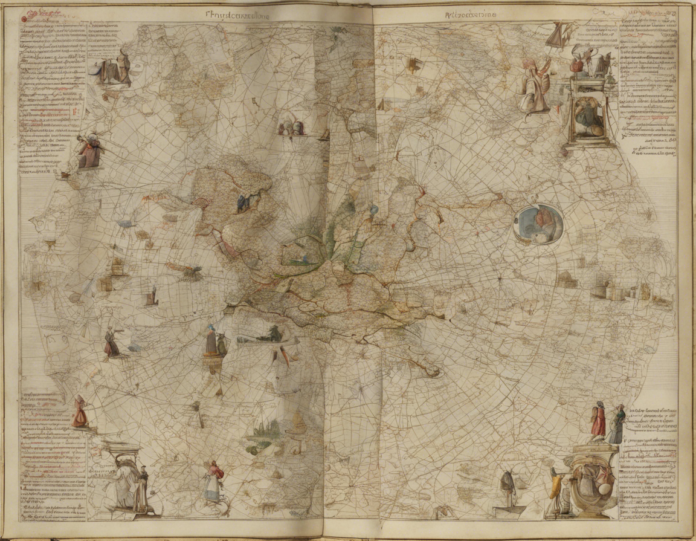Introduction:
In the rich tapestry of Italian culture, one can stumble upon unique terms and concepts that may seem perplexing to outsiders. One such term that encapsulates a range of emotions and experiences is “frociaggine.” This term, with its roots in Italian language and society, carries a depth of meaning that goes beyond its literal translation.
Understanding Frociaggine:
1. Historical Context:
“Frociaggine” stems from the derogatory term “frocio,” which translates to “faggot” or “homosexual” in English. While the term has inherently negative connotations, its use has evolved over time to encompass a broader range of meanings.
2. Social Implications:
In Italian culture, “frociaggine” is often used to describe behavior or actions that are deemed unacceptable or undesirable by societal standards. It can connote aspects of deceit, cowardice, or lack of integrity.
3. Emotional Nuances:
The term “frociaggine” is imbued with strong emotional undertones, evoking feelings of disappointment, betrayal, or disapproval. It carries a sense of moral judgment and condemnation towards the actions or qualities it describes.
4. Artistic Portrayal:
Italian literature and art have explored the complexities of “frociaggine” through nuanced character depictions and narrative arcs. Authors and artists often use this term to delve into the darker aspects of human nature and societal norms.
Cultural Reflections:
1. Film and Theatre:
In Italian cinema and theater, “frociaggine” has been a recurring theme, challenging audiences to confront uncomfortable truths about identity, morality, and social norms. Characters grappling with their own “frociaggine” serve as mirrors to the complexities of the human experience.
2. Linguistic Evolution:
While the term “frociaggine” has its origins in derogatory language, it has undergone a semantic shift in contemporary discourse. Today, it can also be used more lightheartedly to tease or mock someone in a playful manner, much like the evolution of certain words in other languages.
Personal Interpretations:
1. Self-Reflection:
Exploring the concept of “frociaggine” can prompt individuals to reflect on their own values, actions, and moral compass. It serves as a reminder to strive for authenticity, empathy, and integrity in all aspects of life.
2. Empathy and Understanding:
By grappling with the complexities of “frociaggine,” one can cultivate a deeper sense of empathy and understanding towards others who may exhibit behaviors or qualities that fall under this ambiguous term. It encourages open-mindedness and compassion in navigating interpersonal relationships.
Navigating Contradictions:
1. Moral Ambiguity:
The notion of “frociaggine” blurs the lines between right and wrong, good and bad, moral and immoral. It challenges individuals to confront the inherent contradictions within themselves and society at large.
2. Societal Norms:
Italian culture, like any other, grapples with shifting societal norms and values. The term “frociaggine” serves as a lens through which to examine these changes and their impact on personal identity and communal dynamics.
FAQs:
1. What is the etymology of the term “frociaggine”?
The term “frociaggine” originates from the derogatory term “frocio,” which means “faggot” or “homosexual” in Italian. Over time, it has evolved to encompass broader meanings beyond its initial derogatory connotations.
2. How is “frociaggine” perceived in Italian society today?
In contemporary Italian society, “frociaggine” can be seen as a complex term that reflects societal attitudes towards behavior or qualities considered undesirable or morally questionable. Its interpretation may vary based on context and individual perspectives.
3. Can “frociaggine” be reclaimed or redefined in a positive light?
Some individuals and artists have attempted to reclaim or redefine the term “frociaggine” in a more positive or empowering context. By embracing its complexity and nuances, they seek to challenge conventional norms and celebrate diversity.
4. How does “frociaggine” manifest in Italian literature and art?
Italian literature and art have often explored themes of “frociaggine” through nuanced character portrayals and narrative arcs. Whether as a source of conflict, introspection, or social critique, this term adds layers of depth to creative works.
5. What role does “frociaggine” play in personal identity and self-discovery?
For some individuals, grappling with the concept of “frociaggine” can be a profound journey of self-discovery and introspection. It prompts reflection on one’s values, actions, and relationships, ultimately shaping personal identity and growth.
Conclusion:
In the intricate tapestry of Italian culture, the term “frociaggine” emerges as a multifaceted concept that invites contemplation, introspection, and dialogue. Its fluidity and ambiguity reflect the complexities of human nature and societal norms, challenging individuals to navigate moral contradictions and cultural shifts with empathy and understanding. By delving into the depths of “frociaggine,” one can uncover a rich tapestry of emotions, experiences, and insights that resonate across time and borders.









